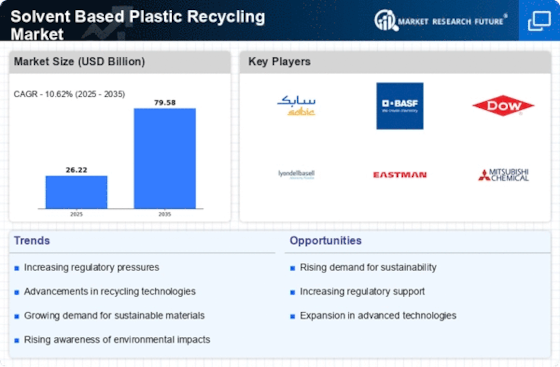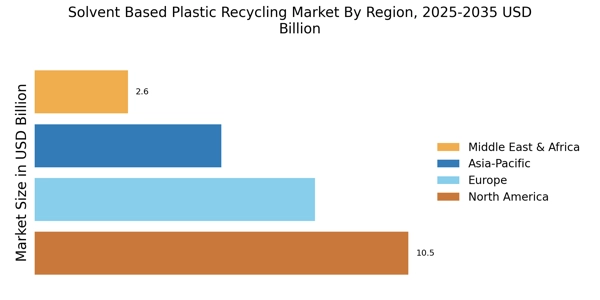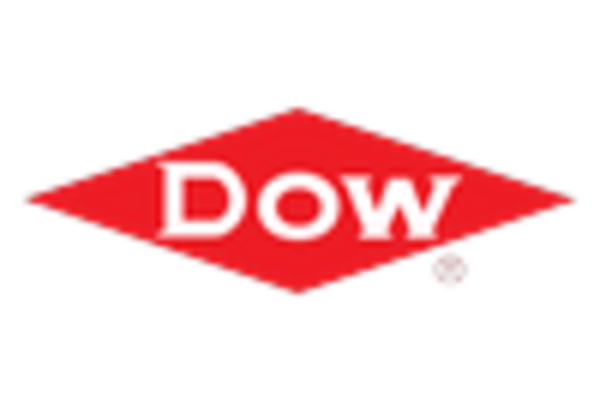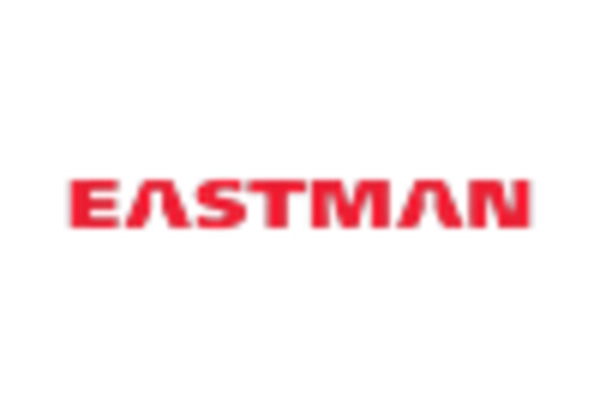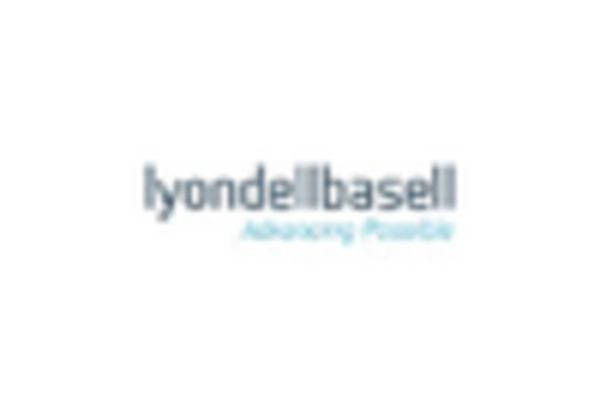Rising Awareness of Environmental Issues
The Solvent Based Plastic Recycling Market is benefiting from a growing awareness of environmental issues among consumers and businesses alike. As the detrimental effects of plastic pollution become more apparent, there is an increasing demand for sustainable solutions. Consumers are actively seeking products made from recycled materials, which in turn drives manufacturers to adopt solvent-based recycling methods. Market Research Future indicates that approximately 70% of consumers are willing to pay a premium for products that are environmentally friendly. This shift in consumer behavior is prompting companies to invest in solvent-based recycling technologies, thereby expanding the market. The heightened focus on sustainability is expected to persist, further propelling the growth of the solvent-based recycling sector.
Collaboration Among Industry Stakeholders
The Solvent Based Plastic Recycling Market is witnessing an increase in collaboration among various stakeholders, including manufacturers, recyclers, and policymakers. These partnerships are essential for developing innovative recycling solutions and sharing best practices. Collaborative initiatives often lead to the establishment of industry standards that enhance the credibility and efficiency of solvent-based recycling processes. Furthermore, joint ventures and alliances can facilitate access to new technologies and markets, thereby expanding the reach of solvent-based recycling. Recent trends indicate that such collaborations have resulted in the successful launch of several pilot projects aimed at improving recycling rates. As these partnerships continue to grow, they are expected to foster a more robust and sustainable solvent-based recycling ecosystem.
Economic Incentives for Recycling Practices
The Solvent Based Plastic Recycling Market is also influenced by economic incentives that encourage recycling practices. Various governments and organizations are offering financial support and subsidies to companies that engage in solvent-based recycling. These incentives can significantly lower the cost of implementing advanced recycling technologies, making them more attractive to businesses. Additionally, the potential for cost savings through reduced raw material expenses is a compelling factor for companies to transition to solvent-based recycling. Market analysis reveals that businesses that adopt these practices can achieve cost reductions of up to 20% in their production processes. As economic incentives continue to evolve, they are likely to play a crucial role in driving the adoption of solvent-based recycling methods.
Regulatory Frameworks Supporting Recycling Initiatives
The Solvent Based Plastic Recycling Market is significantly influenced by evolving regulatory frameworks that promote recycling initiatives. Governments are increasingly implementing stringent regulations aimed at reducing plastic waste and encouraging recycling practices. For instance, policies mandating the use of recycled materials in manufacturing processes are gaining traction. These regulations not only create a favorable environment for solvent-based recycling but also incentivize companies to invest in sustainable practices. Market data suggests that regions with robust regulatory support have seen a marked increase in recycling rates, with some areas reporting growth of over 30% in recycled plastic usage. This regulatory push is likely to continue, further solidifying the role of solvent-based recycling in achieving sustainability goals.
Technological Innovations in Solvent Based Plastic Recycling
The Solvent Based Plastic Recycling Market is experiencing a surge in technological innovations that enhance recycling efficiency. Advanced solvent extraction techniques are being developed, allowing for the effective separation of polymers from contaminants. This not only improves the quality of recycled materials but also reduces energy consumption during the recycling process. Recent advancements indicate that solvent-based methods can achieve recycling rates exceeding 90%, which is a notable improvement compared to traditional mechanical recycling. As these technologies become more accessible, they are likely to drive growth in the market, attracting investments and fostering partnerships among stakeholders. Furthermore, the integration of automation and artificial intelligence in recycling facilities is expected to streamline operations, thereby increasing throughput and reducing operational costs.


